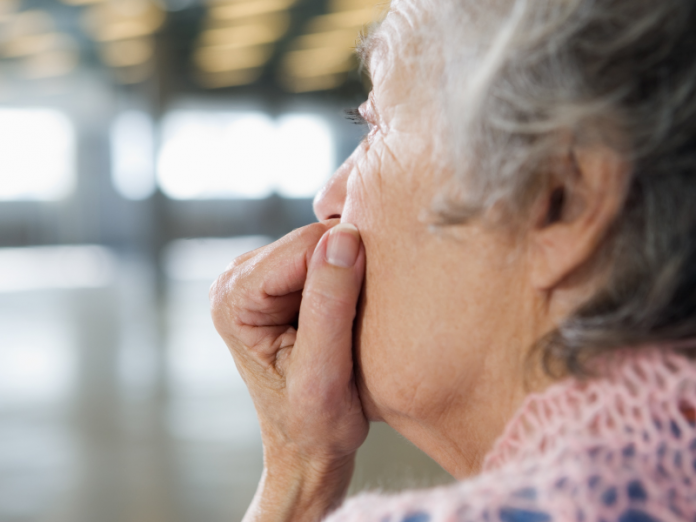The 60-year-old patient was in her usual state of health a week before admission. She developed vomiting and diarrhoea a day before she was admitted. She also reported having a cough and headache a week earlier. Her husband visited her earlier that day, and she was her usual self before she went to sleep. However, the patient woke up screaming in the middle of the night on the day of the admission. Her husband called emergency medical services.
The EMS personnel reported that on their arrival, the patient was lethargic and unable to answer questions. The patient’s blood glucose level was 60 mg per decilitre (3.3 mmol per litre; reference range, 70 to 110 mg per decilitre [3.9 to 6.1 mmol per litre). IV dextrose was administered, however, lethargy abated and flingerstick glucose measurement was 127 mg per decilitre. EMS brought the patient to the emergency department of the hospital.
On examination, the patient complained of a persistent headache and weakness on the left side of her body. She reported that when she had awoken, she felt afraid, as though she was going to die, unable to speak or move, so she began screaming for help. She did not report of any neck pain, fecal or urinary incontinence and aura.
The 60-year-old patient had recently moved to a suburb in Boston from Puerto Rico. She did not speak English and was marginally housed with her husband in the living room of a friend’s apartment. Several people in the apartment had had fever and cough.
She had a medical history of schizophrenia, hypertension and diabetes mellitus. She was prescribed with risperidone, lisinopril, hydrochlorothiazide, glipizide and aspirin. She did not smoke tobacco or use illicit drugs, drank alcohol occasionally and had no known drug allergies.
Neuropsychiatric manifestation of COVID-19
On examination, the patient was alert and interactive. Cranial nerve exam was normal; she was oriented to place, however, not to time. Similarly, she had difficulty manipulating small objects placed in the left hand. Her left arm showed orbiting and pronator drift. Sensation to light was intact and remainder of the physical examination was also normal. The patient’s temperature was 37.4°C, blood pressure 114/62 mm Hg, heart rate 94 beats per minute, respiratory rate 18 breaths per minute, and oxygen saturation 94%.
Patient’s episode of psychosis was reportedly a manifestation of encephalitis associated with SARS-CoV-2 infection. This was either a result of direct infection or from a neural receptor-mediated, cytokine, inflammatory or immune mechanism. Moreover, the association with COVID-19 is not surprising because neuropsychiatric symptoms have been associated with other coronavirus infections.
The association between viral pandemics and psychiatric symptoms including suciadility, depression, mania, insomnia, delirium and acute psychosis has been evident since long. The influenza pandemic was associated with fearful experiences (e.g., “psychoses of influenza” and “influenza nervosa”). Similarly, encephalitis has been associated with several neuropsychiatric features and remains a possible risk of brief psychosis.
References
Case 26-2020: A 60-Year-Old Woman with Altered Mental Status and Weakness on the Left Side https://www.nejm.org/doi/full/10.1056/NEJMcpc2004976




